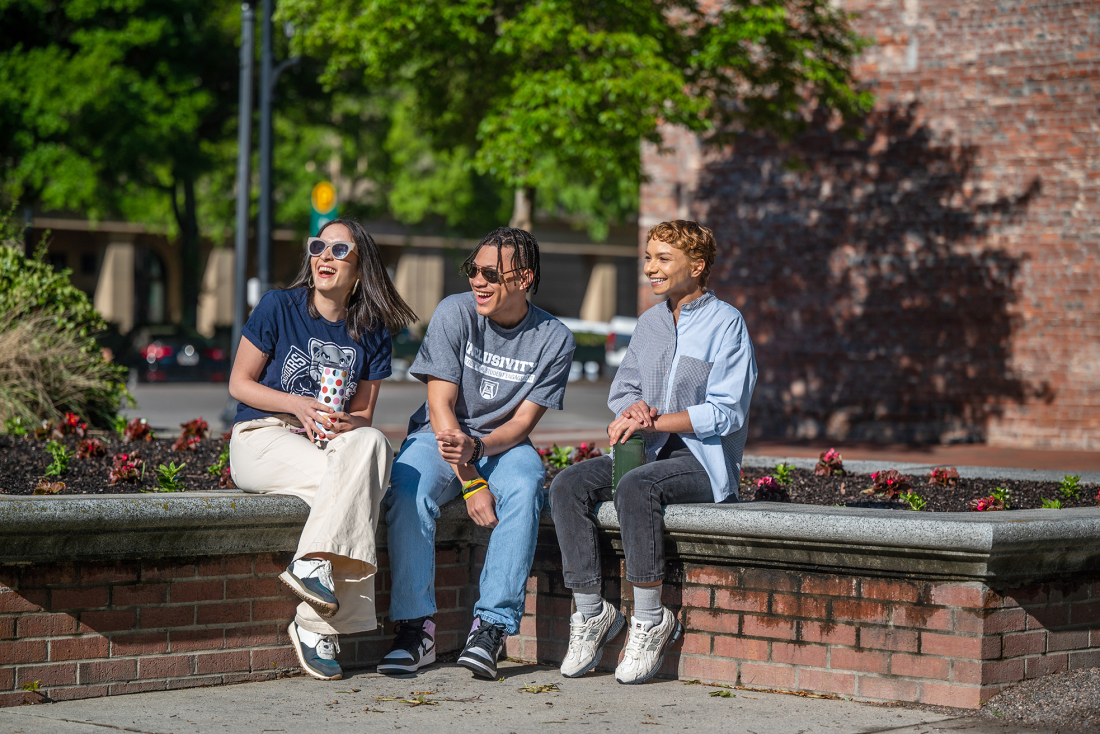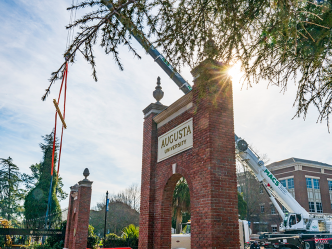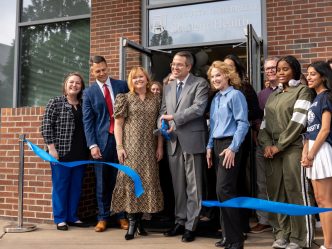Entering college as a first-generation student can be both exciting and overwhelming. While pursuing higher education creates new opportunities, it also comes with challenges. First-generation students often face unique obstacles, such as navigating the application process, managing finances and adjusting to campus culture.
“Being first generation can also be a very positive experience – not a deficit perspective,” said Beth Huggins, director of First and Second Year Experiences at Augusta University. “First-gen students have so much to offer all of us, especially when sharing personal perspectives on how to best support other students. It is often our first-gen students who actively seek out ways to connect with others to create cultural capital for themselves. They are resilient, strong and gritty!”
Augusta University campus leaders recognize these challenges and work to offer a variety of resources to support first-generation college students — efforts that have helped make Augusta University one of the country’s top universities for improving economic outcomes for lower- and moderate-income graduates. From academic assistance to financial aid, Augusta University is committed to helping these students overcome obstacles and succeed.
Here are eight common challenges first-gen students face, and how the university supports this population of students.
1. Navigating the college application process: First-generation college students can seek guidance from high school counselors, mentors or college access programs. They can also connect with Augusta University’s admissions counselors and utilize online resources to help them through the university’s application process.
2. Financial burdens: Students can apply for financial aid, scholarships, grants or work-study programs to help alleviate the financial burden of college. They can also work with a financial aid counselor in the Office of Student Financial Aid to explore their options for paying for college and reducing expenses.
3. Academic preparedness: They can seek academic support resources, such as tutoring, study groups or academic advisers. They can also take advantage of on-campus resources, like the university’s Center for Writing Excellence or the Academic Success Center, to help them improve their skills and succeed in college courses.
4. Lack of familiarity with campus culture: First-gen college students can get involved in campus organizations, clubs or activities to help them acclimate to campus culture and meet new people. They can also seek out mentorship or guidance from upperclassmen, professors or advisers. The Jags4Jags Mentoring Program enhances the new student experience by linking first-year students one-on-one with a peer mentor.
5. Balancing work and school: Students can create a schedule that balances their work and academic responsibilities, communicate with their employer about their school schedule and seek out employment opportunities on campus that offer more flexible hours. Career Services help students to fully integrate their AU experience and create boundless futures. They also help students gain on-campus employment.
6. Social isolation: They can seek out social opportunities on campus, such as joining clubs or organizations through Student Life and Engagement, attending campus events or participating in study groups. There are many avenues to get involved on campus, including the Maxwell Performing Arts Theatre, Campus Recreation and Multicultural Student Engagement.
7. Imposter syndrome: Students can seek out counseling or mental health services on campus to help them work through feelings of self-doubt or anxiety. They can also connect with other students who may be experiencing similar feelings and share their experiences. These programs exist to affirm, support and provide a safe space for all AU students. Their services are free and include individual and group counseling.
8. Lack of support: First-gen students can seek out support resources on campus, such as Student Wellness, Academic Advisement or even Student Health Services. The Office of First and Second Year Experiences is the best starting point to learn more about all the resources Augusta University has to offer. This office provides book clubs, plans freshman convocation and hosts other events throughout the year specifically for this population of students.
“The Office of First and Second Year Experiences is fondly called the Treehouse,” Huggins said. “Students created our name — remarking on how welcomed and secure the office made them feel — like a treehouse. We enjoy advocating for them by answering timely questions or helping them connect with other AU students. We all need to feel like we matter — that someone cares about us. The Treehouse challenges and supports all undergraduate students, especially those who are first in their families to transition to college life. Creating a sense of belonging on the front end of college impacts student retention and persistence rates.”
The obstacles faced by first-generation college students are significant but not insurmountable. Augusta University’s dedication to supporting its first-generation college students demonstrates the university’s commitment to its core value of inclusivity and sets an example for other institutions to follow.
Learn more about the Office of First and Second Year Experiences.
 Augusta University
Augusta University




